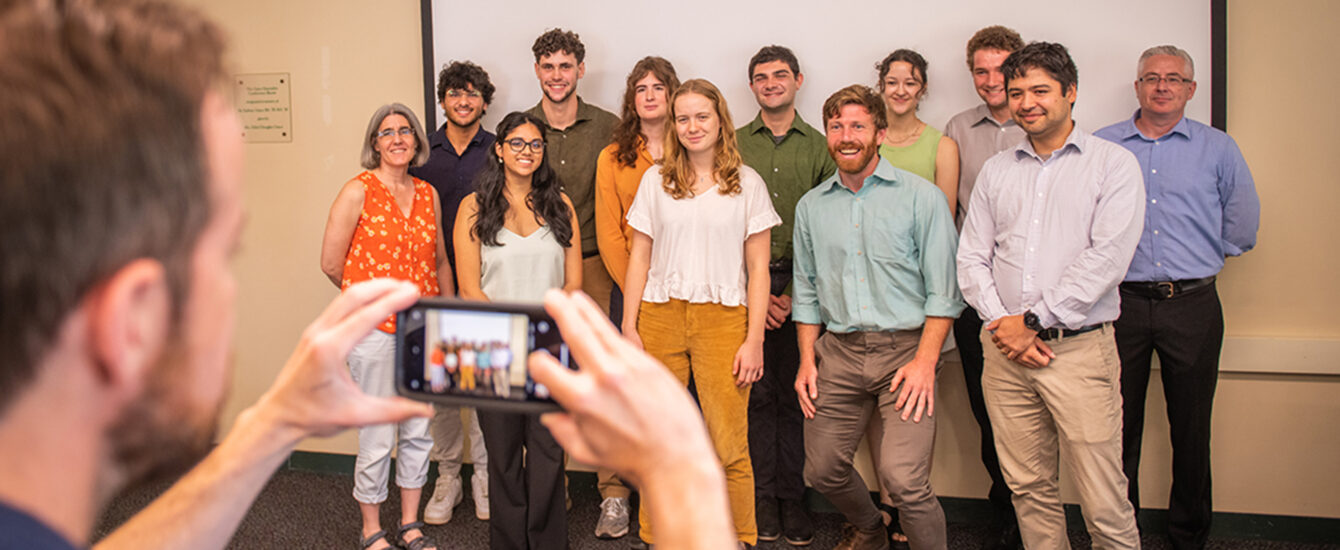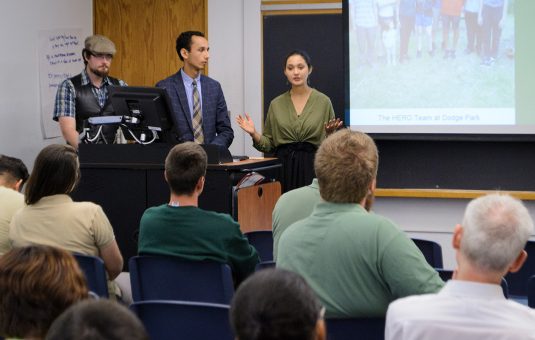Current Research
Over the past 25 years, HERO has welcomed more than 200 undergraduate students to work on challenging human-environment research projects. The HERO program is currently collaborating with the Massachusetts Department of Conservation and Recreation’s Greening the Gateway Cities Program. The collaboration involves the inventory of juvenile trees along public roads and at private residences, as well as the survey of residents and other stakeholders in Worcester. To date, we have surveyed stakeholders and tree vigor in Worcester, Chelsea, Holyoke, Fall River, Pittsfield, Chicopee, and Leominster. Additionally, we partner with Groundwork Rhode Island on tree health research.


